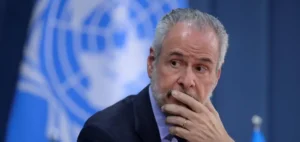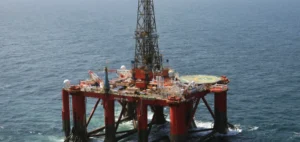Chinese oil giants Sinopec and Cnooc have posted sharply higher profits in 2022, as the war in Ukraine and the global recovery have sent energy prices soaring.
Russia’s invasion of Ukraine in February 2022 and the subsequent salvo of Western sanctions against Moscow, particularly its gas sector, are putting global supplies under pressure and have logically pushed up prices. PetroChina, the listed entity of state-owned oil giant CNPC, reported full-year net profit for 2022 up 62.1% year-on-year. It amounted to 149.3 billion yuan (about 20 billion euros), compared to 92.1 billion yuan a year earlier, announced the first Chinese crude producer. Its net profit had then almost quadrupled.
This year, “the global economy is expected to continue its recovery but at a slower pace,” PetroChina warned. However, “there are still many factors of instability and uncertainty and in the face of volatile crude oil prices, prices could rise,” the state-owned group said in a statement released Wednesday.
In China, however, rates are regulated. Meanwhile, China National Offshore Oil Corp (CNOOC), China’s largest offshore oil and gas producer, doubled its net profit last year. It reached 141.6 billion yuan (18.9 billion euros), up from 70.32 billion yuan a year earlier, the company said Wednesday.
“In 2023, the growth momentum of the global economy is expected to slow due to multiple factors,” including inflation and a potential financial crisis, Cnooc warns. However, “global oil and gas needs are expected to increase further (and) demand in China is particularly promising” due to the recovery, the company assures.
For its part, the state-owned group Sinopec, Asia’s largest refiner, announced on Sunday a net profit for the year down 6.8% to 66.3 billion yuan (8.9 billion euros), due to anti-Covid restrictions in China that have largely penalized the activity last year. In their communiqué, neither group mentions its intentions in Russia, while China has greatly increased gas imports from its neighbor since last year.






















